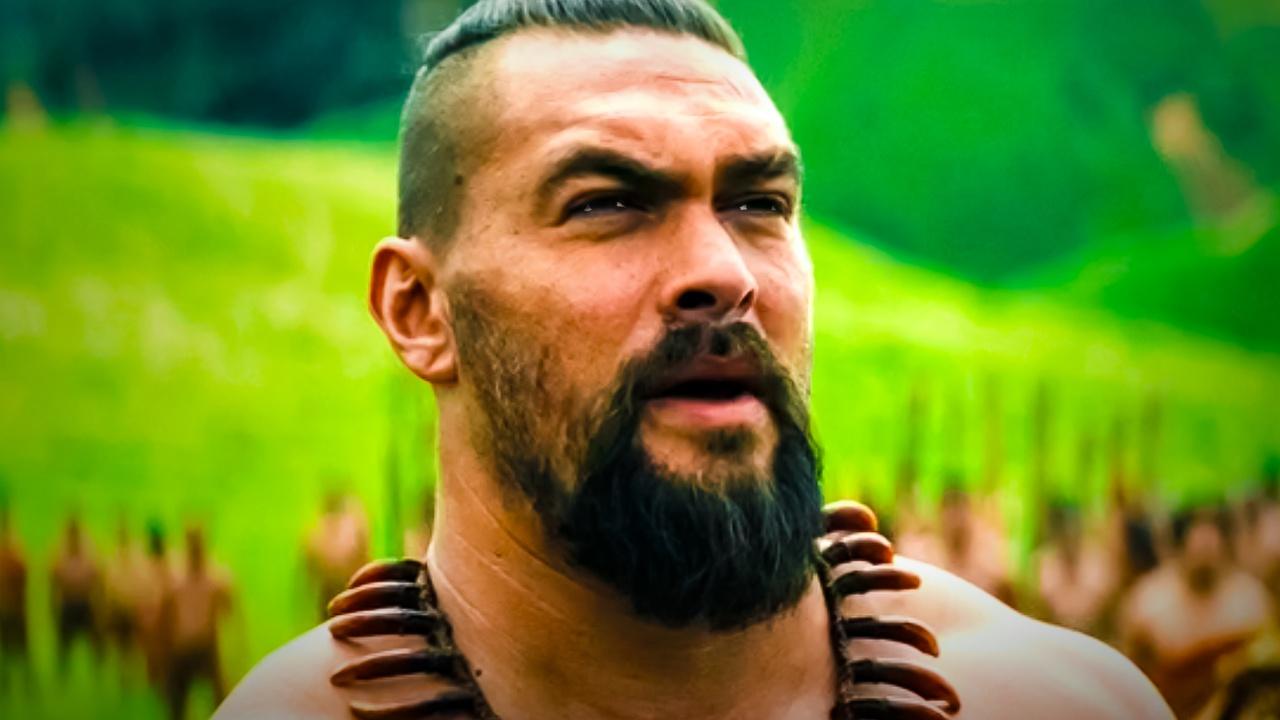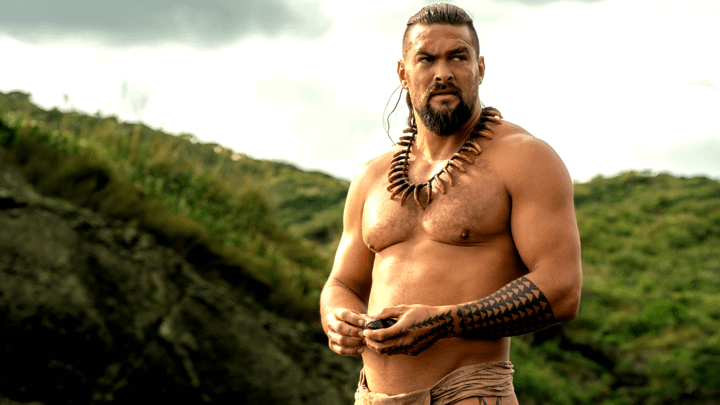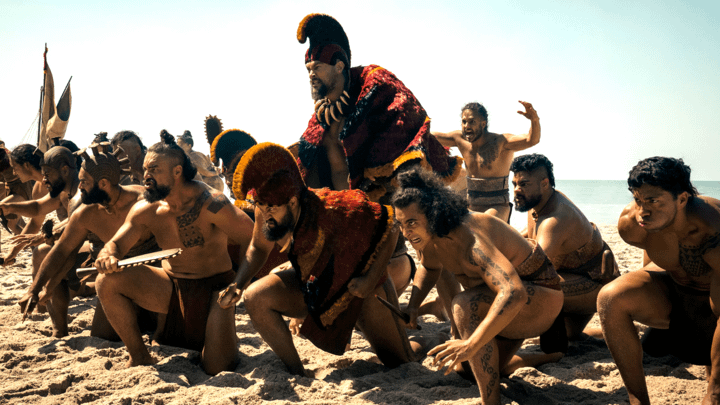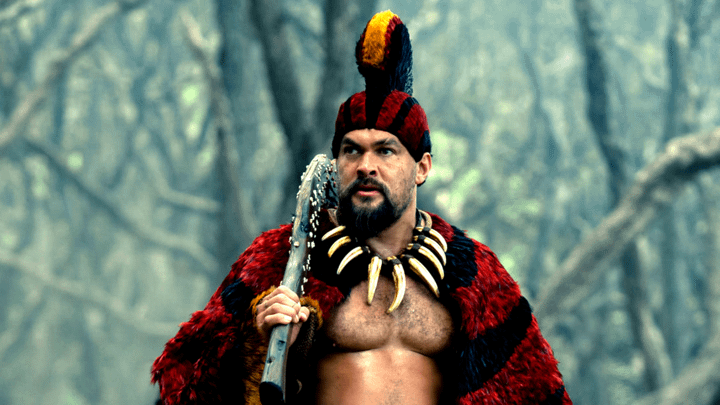
Apple TV+'s new series, Chief of War, starring Jason Momoa, is not primarily in English since it is a historical drama seeking historical accuracy. Jason Momoa may have just finished Minecraft, which was a smash hit at the worldwide box office, but he is already appearing in a major production, this time for Apple TV+.
The first two episodes of Apple TV+'s Chief of War show were just released, and fans quickly noticed that the show didn't feature nearly any dialogue in English. Instead, Momoa (who is an executive producer and writer for the series) and series creator and writer Thomas Paʻa Sibbett decided to have the actors deliver their lines in the indigenous Olelo Haiwai'i language so that the show could be more historically accurate.
Those first two installments almost exclusively include Olelo Hawai'i dialogue, but, as the series progresses, more English will be used on-screen.
Chief of War, which is one of Apple TV+'s biggest shows of 2025, follows Momoa's Ka'iana, a Hawaiian warrior who played a major role during the unification of the Hawaiian islands. The series premiered on Apple TV+ on August 1, 2025, and new episodes are expected to be released every Friday.
How Much of Chief of War Hawaiian Vs. English? And Why?

As mentioned, only two episodes of Chief of War have been released so far. They primarily feature the indigenous Olelo Hawai'i language, with very little English in those episodes.
However, Jason Momoa officially revealed that English will become more common in the series as the show progresses. Specifically, in an interview with The Globe and Mail, Momoa stated that, due to the story being told, and how a chief of war would have in real life, some characters throughout the series will "learn English," in order to understand their enemy.
In the same interview, Momoa touched on why the series showcased the indigenous language so much. Momoa and Sibbett wanted Chief of War to be historically accurate and represent the true nature of Hawaiian culture. If everyone in the series spoke English the whole time, neither of those would have been accomplished:
"Brother, that was the deal-breaker for us. We wouldn’t have been able to go home if we did this in English. Like, we can’t. But having said that, it needs to evolve, too. Some characters would learn English, like Ka’iana, as any chief of war would. You have to know the enemy’s language."
In an interview with TIME, Sibbett said that including the Olelo Hawai'i language "was integral" to bringing the series to life, and that viewers hearing the language would help them "know the people and the way they think:"
"The truth is, to hear and to know someone’s language is to know the people and the way they think. It was integral."
In another interview, this one with The Wrap, Sibbett reinforced that the decision was purely for culture and accuracy. Specifically, he mentioned that "if you remove the language, you remove the reality." He also revealed that they wanted to prove to people that Chief of War was being handled with "dedication" and "authenticity:"
"But from a creative standpoint, we knew that if you remove the language, you remove the reality. We said, ‘Let’s get at the front of this thing. Let’s show people that this is the level of dedication being put in by the studio and creators. Let’s show that we are going to lead with authenticity and culture.'"
So, most of Chief of War is in the Olelo Hawai'i language, but English will creep in at points, while also becoming more common as the series progresses and more episodes are released.
Is Chief of War All Subtitles?

Apple TV+ subscribers who pressed play on the first two episodes of Chief of War likely noticed that most of the episodes included subtitles. This was obviously intentional since it was released in an English-speaking country and the show is primarily in another language.
Essentially, anytime the characters speak in the Olelo Hawai'i language, subtitles will be presented on the screen so that viewers always know what is being said.
However, when English is spoken, those subtitles are not there. That doesn't mean they can't be accessed, though. If subtitles are turned on in the settings of the device used to watch the show, the English dialogue will also have subtitles.
Is Jason Momoa Hawaiian Himself?

Jason Momoa portrays Ka'iana, the main character in Chief of War. This has sparked some interest from viewers in wondering whether Momoa is truly Hawaiian or not.
The short answer is yes, Jason Momoa is Hawaiian. He was born in Honolulu, Hawaii, and his father is Native Hawaiian, making Jason Hawaiian as well.
However, Momoa (who has been cast in his dream role for the new DCU's Supergirl movie) moved to Iowa early in life, staying there until he graduated from High School. Due to spending a lot of his childhood in Iowa, Momoa doesn't have a strong Hawaiian accent, but there are some Hawaiian subtleties in the way he speaks.
It is worth noting that, after high school, Momoa moved back to Hawaii to attend college at The University of Hawaiʻi at Mānoa in his hometown of Honolulu.
However, Momoa still had to learn Olelo Hawai'i for Chief of War. Unfortunately, the language began to die out for a period of time as the number of native speakers began to decline. In the 1970s, the language began to be taught to the younger generation of Hawaiians again.
In the interview with TIME, Momoa admitted that he was "probably the worst" at learning it, but that he "worked really hard" and was eventually successful:
"I was probably the worst at it, but we worked really hard. Even if I was directing, my language coach was literally off camera, and he was the deciding factor of whether I could move on [from a scene]."












